The Blog
Recent Posts by American Empire Project Authors and other Influencers
William K. Black
Thomas Frank is a historian and writer. He is also the man who tried to save the Democratic Party and our Nation from great harm. He is the great chronicler of one of the most grievous, self-inflicted wounds in modern American history. Twelve years ago, in What’s the Matter with Kansas? How Conservatives Won the Heart of America, Frank tried to warn the Democratic Party’s dominant elites’ that their policies and contempt for workers were pushing a large part of its base out of the Party. Many of the workers that were the Democratic Party’s traditional base were leaving the Party and failing to participate in elections, but some were supporting the far-right wing of the Republican Party. At the national level, the New Democrats’ candidates remained highly competitive, but the Republican Party was able to attain complete political domination of most states. This year, Frank renewed his warnings in […]
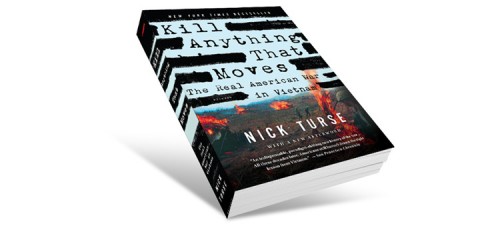
AFRICOM Clams Up After Commander Peddles Contradictory Statements to Congress
Nick Turse
General David Rodriguez might be a modern military celebrity — if he hadn’t spent his career ducking the spotlight. After graduating from West Point in 1976, he began his long march up the chain of command, serving in Operation Just Cause (the U.S. invasion of Panama) and Operation Desert Storm (Iraq War 1.0) before becoming deputy commander of United States Forces, Afghanistan, and commander of the International Security Assistance Force-Joint Command in 2009. In 2011, the 6’5” former paratrooper received his fourth star and two years later the coveted helm of one of the Defense Department’s six geographic combatant commands, becoming the third chief of U.S. Africa Command (AFRICOM). Rodriguez has held that post ever since, overseeing a colossal American military expansion on that continent. During his tenure, AFRICOM has grown in every conceivable way, from outposts to manpower. In the process, Africa has become a key hub for shadowy […]
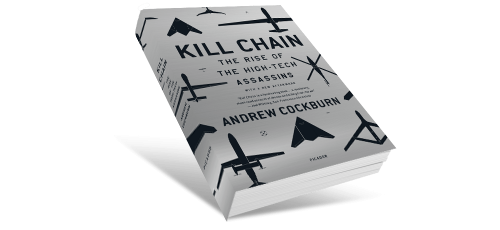
Keeping the Money Flowing
Andrew Cockburn
These days, lamenting the apparently aimless character of Washington’s military operations in the Greater Middle East has become conventional wisdom among administration critics of every sort. Senator John McCain thunders that “this president has no strategy to successfully reverse the tide of slaughter and mayhem” in that region. Anthony Cordesman of the Center for Strategic and International Studies bemoans the “lack of a viable and public strategy.” Andrew Bacevich suggests that “there is no strategy. None. Zilch.” After 15 years of grinding war with no obvious end in sight, U.S. military operations certainly deserve such obloquy. But the pundit outrage may be misplaced. Focusing on Washington rather than on distant war zones, it becomes clear that the military establishment does indeed have a strategy, a highly successful one, which is to protect and enhance its own prosperity. Given this focus, creating and maintaining an effective fighting force becomes a secondary […]

Millions of Women See Through Him, Even If the Media Don’t
Ann Jones
Last fall, when presidential wannabe Donald Trump famously boasted on CNN that he would “be the best thing that ever happened to women,” some may have fallen for it. Millions of women, however, reacted with laughter, irritation, disgust, and no little nausea. For while the media generate a daily fog of Trumpisms, speculating upon the meaning and implications of the man’s every incoherent utterance, a great many women, schooled by experience, can see right through the petty tyrant and his nasty bag of tricks. By March, the often hard-earned wisdom of such women was reflected in a raft of public opinion polls in which an extraordinary number of female voters registered an “unfavorable” or “negative” impression of the Republican Party’s presumptive nominee. Reporting on Trump’s “rock-bottom ratings” with prospective women voters, Politico termed the unfavorable poll numbers — 67{068cdbfab37e4f27da76d005a9c3d7cc8b4ae1429371040bf09b1dfe920189b4} (Fox News), 67{068cdbfab37e4f27da76d005a9c3d7cc8b4ae1429371040bf09b1dfe920189b4} (Quinnipiac University), 70{068cdbfab37e4f27da76d005a9c3d7cc8b4ae1429371040bf09b1dfe920189b4} (NBC/Wall Street Journal), 73{068cdbfab37e4f27da76d005a9c3d7cc8b4ae1429371040bf09b1dfe920189b4} (ABC/Washington […]
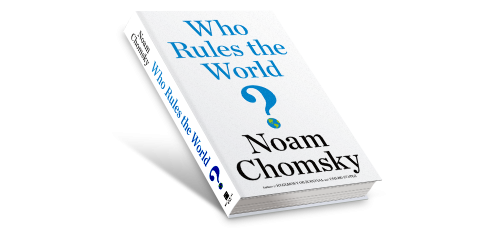
Nuclear Weapons, Climate Change, and the Prospects for Survival
Noam Chomsky
In January 2015, the Bulletin of the Atomic Scientists advanced its famous Doomsday Clock to three minutes before midnight, a threat level that had not been reached for 30 years. The Bulletin’s statement explaining this advance toward catastrophe invoked the two major threats to survival: nuclear weapons and “unchecked climate change.” The call condemned world leaders, who “have failed to act with the speed or on the scale required to protect citizens from potential catastrophe,” endangering “every person on Earth [by] failing to perform their most important duty — ensuring and preserving the health and vitality of human civilization.” Since then, there has been good reason to consider moving the hands even closer to doomsday. As 2015 ended, world leaders met in Paris to address the severe problem of “unchecked climate change.” Hardly a day passes without new evidence of how severe the crisis is. To pick almost at random, […]
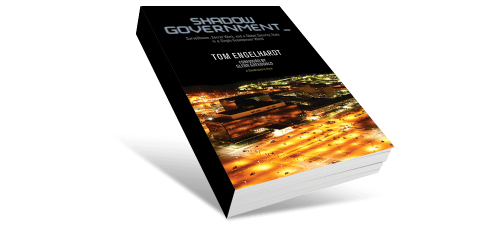
Class of 2016, Tell Us Who We Are
Tom Engelhardt
Graduates of 2016, don’t be fooled by this glorious day. As you leave campus for the last time, many of you already deeply in debt and with a lifetime of payments to look forward to, you head into a world that’s anything but sunny. In fact, through those gates that have done little enough to protect you is the sort of fog bank that results in traffic pile-ups on any highway. And if you imagine that I’m here to sweep that fog away and tell you what truly lies behind it, think again. My only consolation is that, if I can’t adequately explain our American world to you or your path through it, I doubt any other speaker could either. Of course, it’s not exactly a fog-lifter to say that, like it or not, you’re about to graduate onto Planet Donald — and I don’t mean, for all but a […]
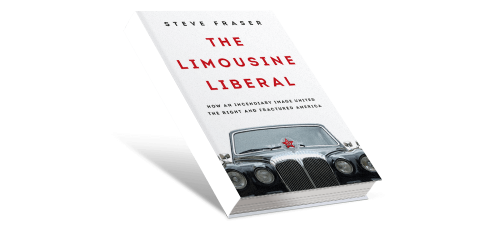
An American Version of Class Struggle
Steve Fraser
Arising from the shadows of the American repressed, Bernie Sanders and Donald Trump have been sending chills through the corridors of establishment power. Who would have thunk it? Two men, both outliers, though in starkly different ways, seem to be leading rebellions against the masters of our fate in both parties; this, after decades in which even imagining such a possibility would have been seen as naïve at best, delusional at worst. Their larger-than-life presence on the national stage may be the most improbable political development of the last American half-century. It suggests that we are entering a new phase in our public life. A year ago, in my book The Age of Acquiescence, I attempted to resolve a mystery hinted at in its subtitle: “The rise and fall of American resistance to organized wealth and power.” Simply stated, that mystery was: Why do people rebel at certain moments and […]

A Multi-Trillion-Dollar Bridge to Nowhere in the Greater Middle East
Andrew Bacevich
We have it on highest authority: the recent killing of Taliban leader Mullah Akhtar Muhammad Mansour by a U.S. drone strike in Pakistan marks “an important milestone.” So the president of the United States has declared, with that claim duly echoed and implicitly endorsed by media commentary — the New York Times reporting, for example, that Mansour’s death leaves the Taliban leadership “shocked” and “shaken.” But a question remains: A milestone toward what exactly? Toward victory? Peace? Reconciliation? At the very least, toward the prospect of the violence abating? Merely posing the question is to imply that U.S. military efforts in Afghanistan and elsewhere in the Islamic world serve some larger purpose. Yet for years now that has not been the case. The assassination of Mansour instead joins a long list of previous milestones, turning points, and landmarks briefly heralded as significant achievements only to prove much less than advertised. […]
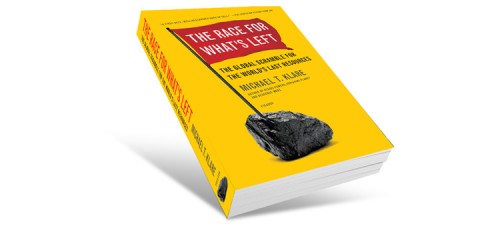
With a Busted Business Model, Oil Economies Head for the Unknown
Michael Klare
Pity the poor petro-states. Once so wealthy from oil sales that they could finance wars, mega-projects, and domestic social peace simultaneously, some of them are now beset by internal strife or are on the brink of collapse as oil prices remain at ruinously low levels. Unlike other countries, which largely finance their governments through taxation, petro-states rely on their oil and natural gas revenues. Russia, for example, obtains about 50% of government income that way; Nigeria, 60%; and Saudi Arabia, a whopping 90%. When oil was selling at $100 per barrel or above, as was the case until 2014, these countries could finance lavish government projects and social welfare operations, ensuring widespread popular support. Now, with oil below $50 and likely to persist at that level, they find themselves curbing public spending and fending off rising domestic discontent or even incipient revolt. At the peak of their glory, the petro-states […]
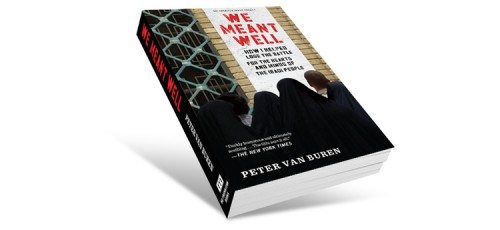
Five Ways the Newest Story in Iraq and Syria is... That There Is No New Story
Peter Van Buren
One of the most popular apps these days is Snapchat. It allows the sender to set a timer for any photo dispatched via the app, so that a few seconds after the recipient opens the message, the photo is automatically deleted. The evidence of what you did at that party last night is seen and then disappears. POOF! I hope you’ll forgive me if I suggest that the Iraq-Syria War against the Islamic State (ISIS) is being conveyed to us via Snapchat. Important things happen, they appear in front of us, and then… POOF!… they’re gone. No one seems to remember them. Who cares that they’ve happened at all, when there’s a new snap already arriving for your attention? As with most of what flows through the real Snapchat, what’s of some interest at first makes no difference in the long run. Just because we now have terrifyingly short memories […]

And The Ruins Still to Come
Tom Engelhardt
There are the news stories that genuinely surprise you, and then there are the ones that you could write in your sleep before they happen. Let me concoct an example for you: “Top American and European military leaders are weighing options to step up the fight against the Islamic State in the Mideast, including possibly sending more U.S. forces into Iraq, Syria, and Libya, just as Washington confirmed the second American combat casualty in Iraq in as many months.” Oh wait, that was actually the lead sentence in a May 3rd Washington Times piece by Carlo Muñoz. Honestly, though, it could have been written anytime in the last few months by just about anyone paying any attention whatsoever, and it surely will prove reusable in the months to come (with casualty figures altered, of course). The sad truth is that across the Greater Middle East and expanding parts of Africa, […]

Masters of Mankind (Part 2)
Noam Chomsky
[This piece, the second of two parts, is excerpted from Noam Chomsky’s new book, Who Rules the World? (Metropolitan Books). Part 1 can be found by clicking here.] In brief, the Global War on Terror sledgehammer strategy has spread jihadi terror from a tiny corner of Afghanistan to much of the world, from Africa through the Levant and South Asia to Southeast Asia. It has also incited attacks in Europe and the United States. The invasion of Iraq made a substantial contribution to this process, much as intelligence agencies had predicted. Terrorism specialists Peter Bergen and Paul Cruickshank estimate that the Iraq War “generated a stunning sevenfold increase in the yearly rate of fatal jihadist attacks, amounting to literally hundreds of additional terrorist attacks and thousands of civilian lives lost; even when terrorism in Iraq and Afghanistan is excluded, fatal attacks in the rest of the world have increased by […]

Masters of Mankind (Part 1)
Noam Chomsky
[This piece, the first of two parts, is excerpted from Noam Chomsky’s new book, Who Rules the World? Part 2 will be posted on Tuesday morning.] When we ask “Who rules the world?” we commonly adopt the standard convention that the actors in world affairs are states, primarily the great powers, and we consider their decisions and the relations among them. That is not wrong. But we would do well to keep in mind that this level of abstraction can also be highly misleading. States of course have complex internal structures, and the choices and decisions of the political leadership are heavily influenced by internal concentrations of power, while the general population is often marginalized. That is true even for the more democratic societies, and obviously for others. We cannot gain a realistic understanding of who rules the world while ignoring the “masters of mankind,” as Adam Smith called them: […]

What Trumps the Horrors of a Hellscape? The Donald!
Nick Turse
LEER, South Sudan — I’m sitting in the dark, sweating. The blinding white sun has long since set, but it’s still in the high 90s, which is a relief since it was above 110 earlier. Slumped in a blue plastic chair, I’m thinking back on the day, trying to process everything I saw, the people I spoke with: the woman whose home was burned down, the woman whose teenage daughter was shot and killed, the woman with 10 mouths to feed and no money, the glassy-eyed soldier with the AK-47. Then there were the scorched ruins: the wrecked houses, the traditional wattle-and-daub tukuls without roofs, the spectral footprints of homes set aflame by armed raiders who swept through in successive waves, the remnants of a town that has ceased to exist. And, of course, there were the human remains: a field of scattered skulls and femurs and ribs and pelvises […]

The Collapse of the Old Oil Order
Michael Klare
Sunday, April 17th was the designated moment. The world’s leading oil producers were expected to bring fresh discipline to the chaotic petroleum market and spark a return to high prices. Meeting in Doha, the glittering capital of petroleum-rich Qatar, the oil ministers of the Organization of the Petroleum Exporting Countries (OPEC), along with such key non-OPEC producers as Russia and Mexico, were scheduled to ratify a draft agreement obliging them to freeze their oil output at current levels. In anticipation of such a deal, oil prices had begun to creep inexorably upward, from $30 per barrel in mid-January to $43 on the eve of the gathering. But far from restoring the old oil order, the meeting ended in discord, driving prices down again and revealing deep cracks in the ranks of global energy producers. It is hard to overstate the significance of the Doha debacle. At the very least, it […]
